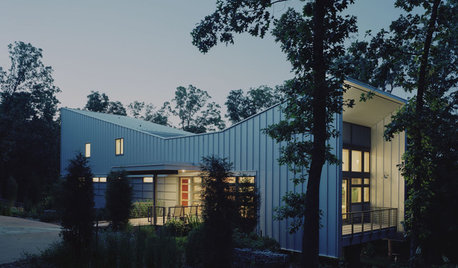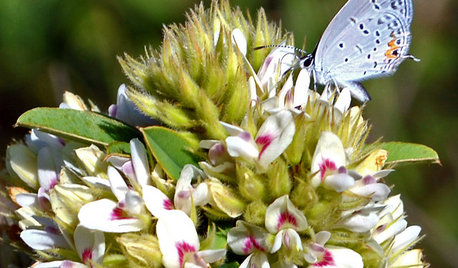how can nitrogen be "tied up"
njitgrad
10 years ago
Related Stories

DECORATING GUIDESTwist Up a Room's Look With Tie-Dye
Dip into the organic patterns of tie-dye for one-of-a-kind style that can be — yes, you're hearing it right — thoroughly modern
Full Story
CONTEMPORARY HOMESHouzz Tour: Dressed Up With a Bow Tie in Arkansas
Shaped just like its name, this home responds to the lay of the land along with the client’s needs
Full Story
DECORATING GUIDES11 Ways Wirework Can Lighten Up Your Decor
The trend for wirework has seen it graduate from simple storage to furniture and beyond
Full Story
GARDENING GUIDES5 Prairie Wildflowers That Can Heal Your Soil
Get free, organic soil fertilizer with nitrogen-pumping plants that draw pollinators too
Full Story
GREEN BUILDINGBuilding Green: How Your Home Ties Into Its Community
You can reduce your environmental footprint in a number of ways. Here are some ideas to consider when deciding where to live
Full Story
BATHROOM STORAGESoak Up 16 Stylish Ways to Display Towels
Sure, you can just fluff and fold. But you can also hang, roll and even tie your towels for lavish and accessible displays in the bathroom
Full Story
WINDOW TREATMENTSThe Drapery Diary: Tab and Tie Tops
Discover the best ways to work these casual curtain styles into your home
Full Story
Woven Wood Shades Tie Rooms Together
Contrasting sharp modern edges or complementing a contemporary look, these window shades are a lovely finishing touch for any room
Full Story
LOFTSHouzz Tour: Tying Together a Boston Loft
Walnut and other elements weave throughout a family’s condo, filled with multipurpose spaces and newly maximized views
Full Story
DECORATING GUIDESRetro Chic: The Return of Tie-Dye Decor
See how this psychedelic trend is making its mark in home decorating
Full StoryMore Discussions







toxcrusadr
jonfrum
Related Professionals
Fort Lee Landscape Architects & Landscape Designers · Lakewood Landscape Architects & Landscape Designers · Anderson Landscape Contractors · Conroe Landscape Contractors · Framingham Landscape Contractors · Live Oak Landscape Contractors · Nashua Landscape Contractors · Wareham Landscape Contractors · West Orange Landscape Contractors · Alvin Decks, Patios & Outdoor Enclosures · Ankeny Decks, Patios & Outdoor Enclosures · Billerica Decks, Patios & Outdoor Enclosures · Clemmons Decks, Patios & Outdoor Enclosures · Santa Ana Decks, Patios & Outdoor Enclosures · West Chicago Decks, Patios & Outdoor EnclosuresTXEB
Lloyd
Kimmsr
dchall_san_antonio
west9491
Kimmsr